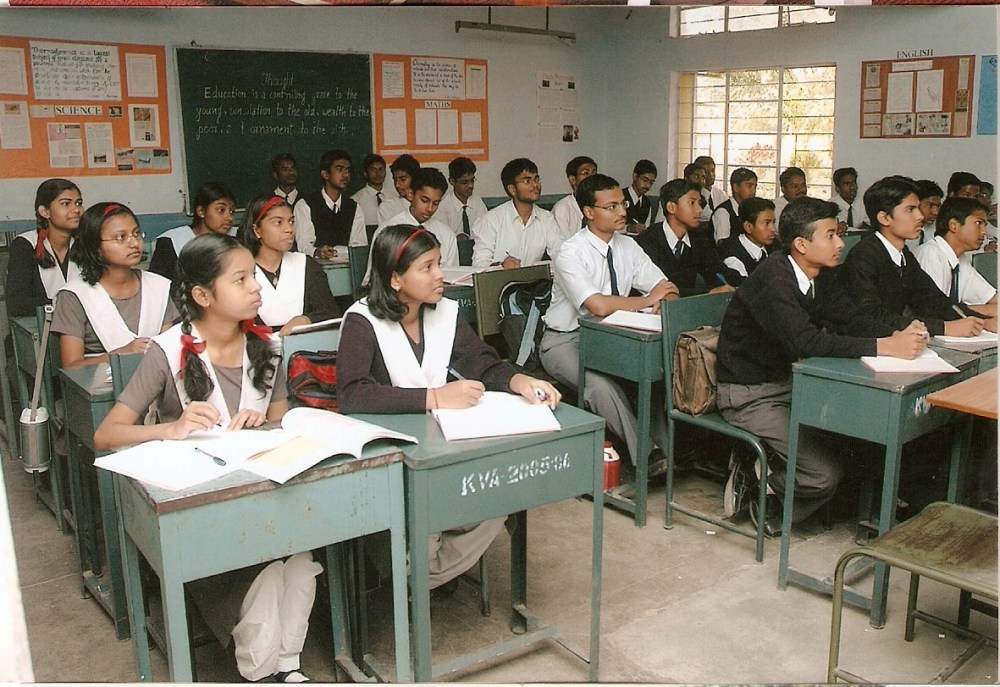Plato’s Republic describes a process by which a well-governed state degenerates through constitutional forms: aristocracy, timocracy, oligarchy, democracy, and tyranny. A Platonic reading of history suggests that India may be on a trajectory to fulfil the Greek philosopher’s problematic prophecies of 375 BC. Effective education policy may avert this fate.
The best states, according to Plato, begin as hereditary aristocracies, ruled by trained philosopher-guardians. This corresponds to early India’s dynasties. However, things go awry: class warfare occurs, or philosopher-guardians fail to raise their children as good rulers. Aristocracy declines into timocracy, where the government pursues ‘honour’ – a state better suited to rule by the war-minded than by philosopher-guardians. This has parallels in India: various dynasties engaged in increasingly frequent wars, culminating in the Empire with a ‘timocratic’ tension between foreign elite and native majority. Eventually, timarchs circumvent laws to spend money on themselves. Others copy until the majority of people behave this way. Wealth becomes glorified, and poor and rich live together but plot against one another. Plato refers to this as timocracy’s descent into an oligarchy.
The post-oligarchy phase in Plato’s sequence is a democracy, but according to The Republic’s definitions, India would more accurately be categorised as an ‘oligarchy’. Politicians use power to line their pockets. Like Plato’s oligarchs; corruption is ubiquitous; his notion of poor and rich living together with mutual resentment seems prescient, and elections are of questionable fairness: we hear of parties buying votes and bussing villagers to polls.
We should be grateful that India is not yet a ‘democracy’ in Plato’s sense, as he makes little distinction between democracy and ‘mob rule’. Oligarchy deteriorates into democracy because people desire wealth: the poor revolt, expelling opponents and chaotically assigning positions of power by lot. Plato would likely have interpreted modern India as an oligarchy beginning the undesirable transition to democracy, where early signs of mob rule are apparent not so much in religiously-motivated assault as in the readiness of the government to turn a blind eye; not so much in violent protests as in the divisive legislation that stokes them.
It would be reasonable to question Plato’s assertion that democracy is mob rule. Some modern democracies have flourished as peaceful economic powerhouses – imperfect, yet ‘better than all other forms of government tried’, as the adage goes. Practicalities can perhaps explain the difference between Plato’s and contemporary democracies in the ancient world, where large institutions to facilitate democracy were inconceivable. Predominant among these is education: Plato felt an uneducated citizenry could not make governance decisions. When practical constraints ensured that only the elite could afford education, it seemed preposterous to Plato that anyone other than trained aristocrats could administer affairs of state.
Whether universal education is a prerequisite for a successful democracy is a matter of debate. Ambedkar opposed the idea, writing in his memorandum to the Simon Commission (1928):
Those who insist on making [literacy] a condition precedent to enfranchisement, in my opinion, commit two mistakes. Their first mistake consists in their belief that an illiterate person is necessarily an unintelligent person. Their second mistake lies in supposing that literacy necessarily imports a higher level of intelligence or knowledge than what the illiterate possesses…
This did not stop his Drafting Committee from including universal education in the Indian Constitution. Their motivation might have been a socialistic ideal of state duty to supply public services. However, many libertarians agree that education should be state-funded – albeit with the alternative motivation that education is a public good underpinning liberal democracy by empowering citizens to make informed voting decisions.
Regardless of whether education is a necessary condition for a successful democracy, it helps. Condorcet’s Jury Theorem shows that if the average voter has a greater than 50% chance of voting ‘correctly’, then a greater number of voters yields a greater chance of ‘correct’ voting outcomes. The converse is also true. So, given that the effects increase with the number of voters, the world’s largest democracy ought to prioritise being on the right side of the 50% probability mark of average voters’ decision quality. Education increases this likelihood.
The ‘correctness’ of any decision is inherently subjective, but some broad principles always apply. Correct voting decisions are informed by relevant evidence, hold the government accountable, and select representatives to improve the status quo – even if the perception of evidence, accountability, and improvement varies by each voter’s subjective reality. Education facilitates better democratic outcomes by raising the probability that decisions abide by these criteria.
With an education system that better empowers citizens to hold leaders accountable, India’s democracy could escape Plato’s downward spiral. But failure to deliver quality education could condemn India to Plato’s degenerative fate. We must heed his warning that democracy’s “insatiable desire for freedom” pushes it into tyranny when laws are ignored until cattle “roam freely and proudly along the streets” (familiar to the Indian reader?). Quality education is thus more than a desirable social good: it could guard against a Platonic descent into tyranny.
Commentary on the New Education Policy (NEP 2020) has welcomed its idealistic pedagogic vision but rightly criticised its failure to make the more important addressal of deeper systemic problems afflicting education. Policymakers must reassess the NEP in the context of the relationship between education, democracy, and tyranny. They may find that fixing education’s underlying problems is not merely desirable, but existentially essential.
Read more: Nudging – A tool for liberal policymaking
Post Disclaimer
The opinions expressed in this essay are those of the authors. They do not purport to reflect the opinions or views of CCS.





